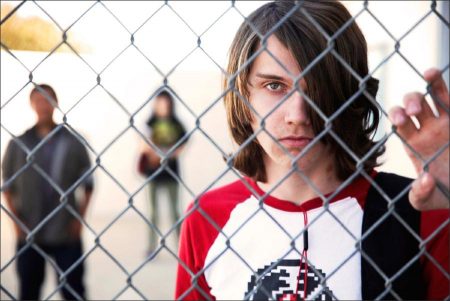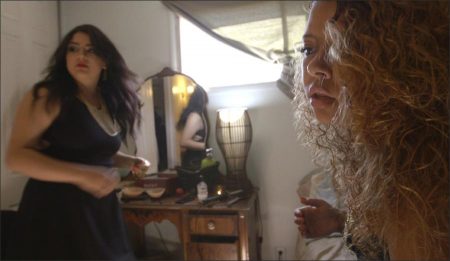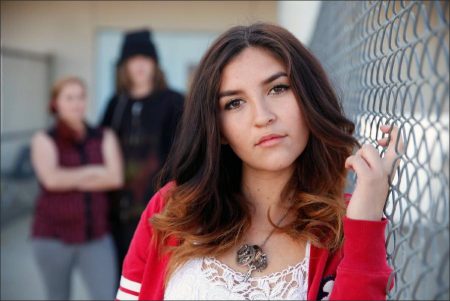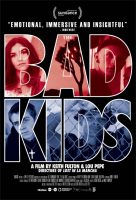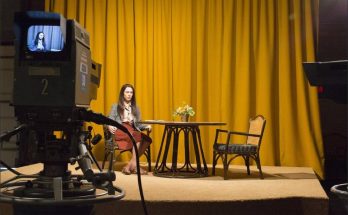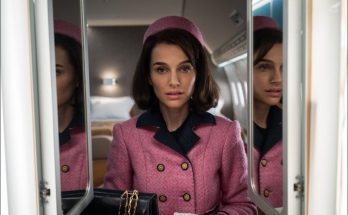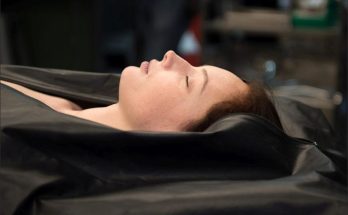The Bad Kids Movie Storyline. At a remote Mojave Desert high school extraordinary educators believe that empathy and life skills, more than academics, give at-risk students command of their own futures. This coming-of-age drama watches education combat the crippling effects of poverty in the lives of these so-called “bad kids.”
The film follows three at-risk students during a year at Black Rock Continuation High School. It captures Principal Vonda Viland as she coaches the teens: Lee Bridges, who has a young son with a fellow classmate and is facing the challenge of supporting his family; Jennifer Coffield, who lacks family support for her scholastic efforts; and Joey McGee, who grapples with drug use and instability at home.
The Bad Kids is a 2016 documentary film about students at risk of dropping out who attend an alternative school in Yucca Valley, California.
Film Review: The Bad Kids
Breaking cycles of destructive dysfunction is the mission of Black Rock High School, a Mojave Desert-based institution for 11th and 12th graders struggling to right their wayward courses. Primarily fixated on three students, “The Bad Kids” details triumphs and failures with a clear, empathetic eye that’s attuned to the many forces working against these teens and the administrators tasked with helping them achieve their degrees.
Though a tighter focus would have served it better, this Sundance-premiering documentary’s sobering portrait of adolescents on the edge of self-ruination, and of heroic adults doing their best to save them, should have considerable appeal to discerning theatrical and television outlets.
Black Rock is a last-chance outpost for troubled, impoverished kids on the brink of dropping out (if not worse), and directors Keith Fulton and Lou Pepe chiefly cast their gaze at three attendees in potential crisis: Lee Bridges, who has a young son with classmate Layla Schneider, and whose stepfather is threatening to kick him out of the house if he doesn’t graduate; Jennifer Coffield, whose unsupportive father puts her down for her school achievements; and Joey McGee, an aspiring musician whose unstable home life with a junkie mother repeatedly compels him to sleep on the streets and to use Mom’s drug of choice (meth).
In each case, individual hardships lead to classroom problems, either because they can’t stay awake (McGee), don’t have the self-confidence to persevere through tough times (Coffield), or find it easier to make excuses for their poor performance than to admit their failings and make the changes necessary to thrive (Bridges). As depicted by directors Fulton and Pepe, they’re all inherently good kids interested in transcending their unhappy situations, but stymied in those efforts by lifelong social/emotional conditioning — from parents, and peers — that’s led to negative habits, perspectives and attitudes regarding who they are, what they’re capable of, and how to make something of themselves.
Fulton and Pepe flip-flop among their three nominal subjects, all while also briefly directing glances toward other students. That approach conveys the myriad issues facing at-risk kids — and, as in a graceful montage of teens’ faces matched with their narrated thoughts, which culminates with a shot of a bustling hallway and overlapping voices, it beautifully illustrates the similar dreams and fears they all share.
While its portraits of Joey, Jennifer and Lee are wrenching, the film’s true heart is its many sequences involving Vonda Viland, the principal of Black Rock High School, whose days are spent acting not only as an administrator and guidance counselor, but also as a surrogate parent responsible for teaching kids how to grow up. Delivering wake-up calls to students, greeting them as they arrive in the morning, handing out milk during the day, speaking with them in one-on-one sessions, and even getting in her car to pick up those who don’t seem to have a way to get to class, Viland is a figure of ceaseless compassion and selflessness, going above and beyond in order to make sure that her charges continue heading in a productive direction.
When Viland consoles Coffield by recounting a story about her own unloving father, “The Bad Kids” hits a raw nerve of cross-generational adversity, tapping into the ways in which literal, emotional, and psychological neglect and abuse can often only be halted when someone refuses to let the past influence the future. Yet by fracturing their concentration between numerous figures, Fulton and Pepe achieve an overarching sense of such dynamics at the expense of plumbing the complicated depths of their discrete stories. Taking the macro view, they seem to miss out on the types of thorny micro details — about McGee’s relationship with his mother, or about Viland’s own history preceding her tenure at Black Rock — that would have provided additional complexity.
Nonetheless, bolstered by a confident fly-on-the-wall aesthetic and a suitably somber score by Michael Jacaszek, Fulton and Pepe locate both heartbreak and hope in their intertwined tales of people fighting to gain control of their (and others’) lives. And in their vistas of the desolate land in which Black Rock is situated, the filmmakers suggest a sense of confidence in something admirable and precious flourishing even in the most inhospitable of conditions.
The Bad Kids (2016)
Directed by: Keith Fulton, Louis Pepe
Produced byB Keith Fulton
MPAA Rating: None.
Studio: FilmRise
Release Date: December 23, 2016
Visits: 101
